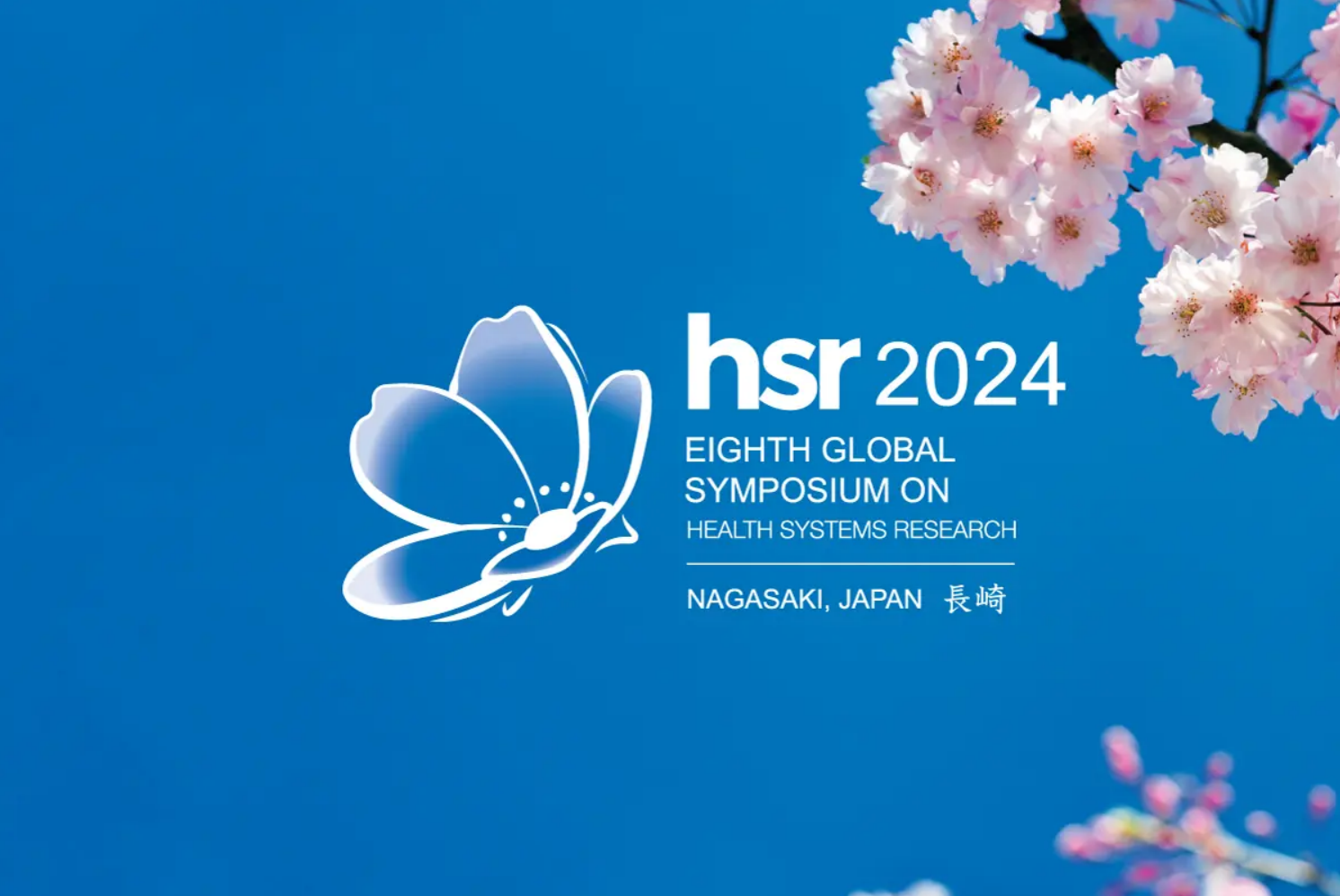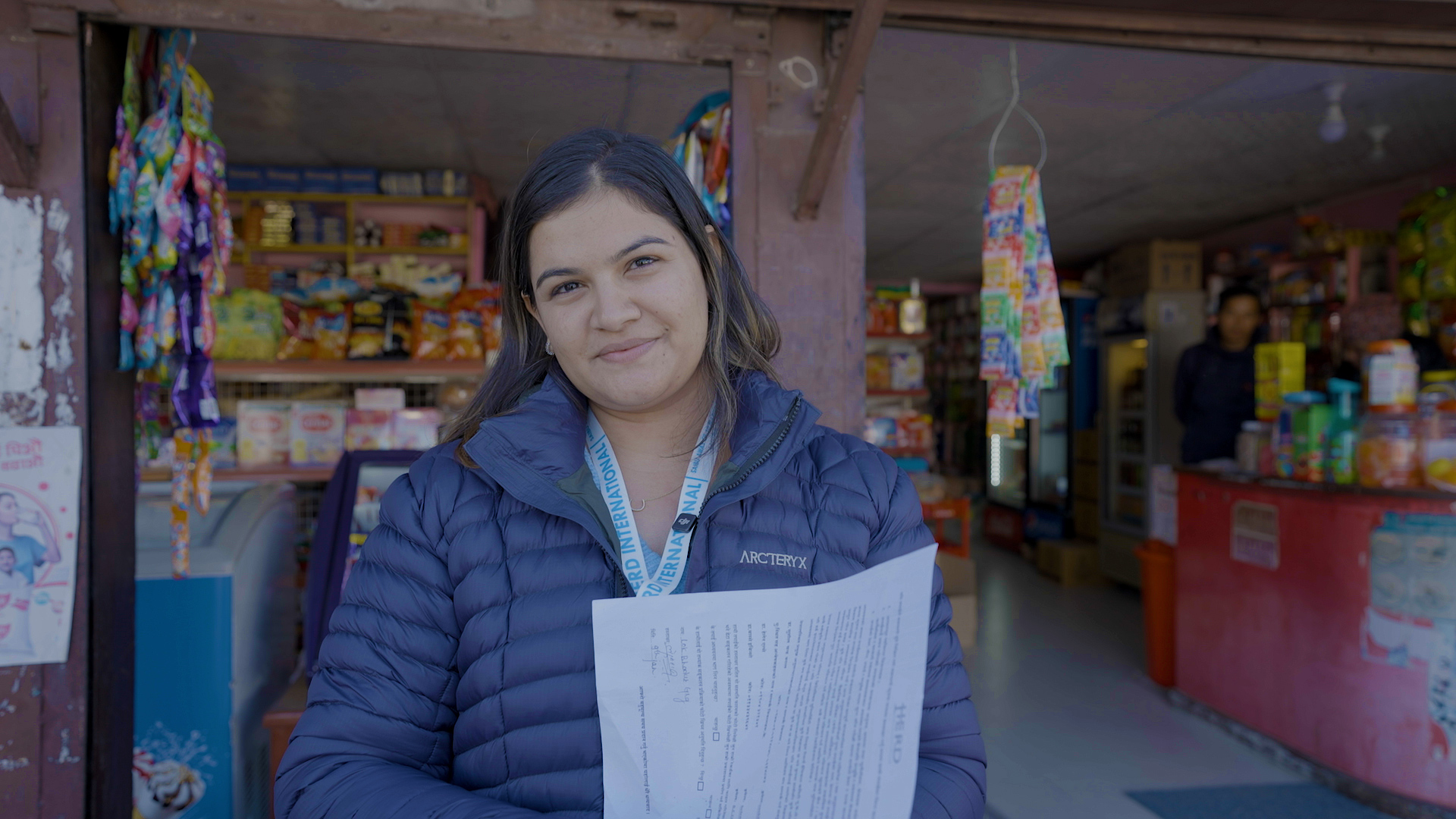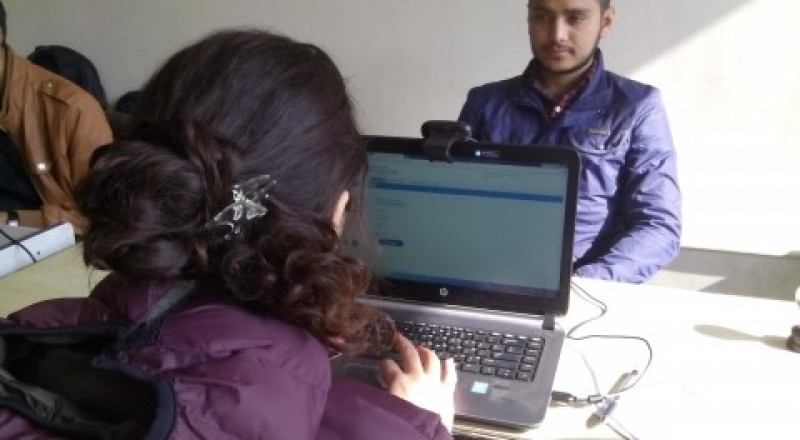HERD International participated in the 8th Global Symposium on Health Systems Research 2024 in November to share insights and findings from various studies conducted in Nepal. Our team engaged in oral presentations, panel discussions, capacity-building sessions, and poster displays, showcasing results from research projects such as Rebuild for Resilience, Community-led Responsive and Effective Urban Health Systems, and the Forum for Advancing Better – Health Policy and Systems Research Institutions (FAB-HPSRIs).
This year’s symposium emphasizes the importance of people-centered health systems that adapt to global changes while prioritizing planetary health for future generations. The event was held at the Dejima Messe Conference Center in Nagasaki, Japan, from November 18–22, 2024.
HERD International participates in the following sessions:
REBUILD for Resilience
Getting started with audio and multi-media: setting up film and podcast projects to disseminate health policy and systems research and stimulate dialogue – capacity strengthening session
Date: 18 Nov 2024
This session provided practical training on how to get started with creating audio and visual outputs for research communication, with a specific focus on film and podcasts. Participants were guided through a series of presentations and participatory exercises by academics and communications practitioners who shared tips and tools to help create outputs that pack a punch.
Featured in this session were Kate Hawkins (ReBUILD and Pamoja Communications Ltd, UK), Sarah Glover & Kim Ozano (The SCL Agency, UK), Jeff Knezovich (Alliance for Health Policy and Systems Research), Beatrice Egid and Shahreen Chowdhury (LSTM), Riaz Hossain (JPG School of Public Health, BRAC University), and Abriti Arjyal (ReBUILD and HERD International).
Road to climate resilient health systems: Policy context and climate actions at subnational level in Nepal
Date: 20 Nov 2024
Bharat Bhatta (HERD International) gave an oral presentation as part of the session From Policy to Practice: Governing for Climate Adaptation and Mitigation in 21st Century Health Systems.
Nepal is highly vulnerable to climate change, yet limited evidence exists on the understanding and capacity of local health system stakeholders regarding its impact on health and health systems, hindering the ability to devise locally tailored strategies for climate actions. Based on policy reviews, qualitative interviews and focus group discussions, this study highlights gaps in policy communication and resource allocation in Nepal’s health system at national and sub-national level along with providing recommendation for effective policy communication, strengthening stakeholder capacity, and prioritizing climate actions into plans and budgets for building climate-resilient health systems.
Towards building a resilient health system: Insights from embedded learning site research in Nepal’s decentralized context
Date: 21 Nov 2024
Shophika Regmi (HERD International) gave an oral presentation in the session Innovative Learning Practices for Effective Health Policymaking.
Federalism in Nepal transferred political, administrative and fiscal authority and responsibilities to local governments, including responsibility for delivering basic health services. However, this decentralization has been challenging due to capacity gaps at subnational levels, limiting the ability to effectively plan, prioritize, and implement equitable and responsive health programmes and budget. Poor accountability and monitoring mechanism, limited decision space, political interference, and inadequate coordination have further hindered long-term health sector progress. This study emphasizes the importance of, and shares learnings from, embedded participatory action research in strengthening health system resilience and addressing justice and inclusion in fragile contexts.
Health workforce during a time of crises – panel session
Date: 22 Nov 2024
Conflict, violence, and other crises present critical development challenges, disrupt fragile health systems, and worsen inequalities by creating additional barriers to essential healthcare. The role of health workers during times of crises is critical to building resilient health systems, but evidence on how they cope and the support they need remains scarce. This session aimed to bring together the experiences, challenges, and coping strategies of health workers during and post crisis in different contexts and explore the support needed for enhancing their capacity and motivation for emergency preparedness, drawing insights from both panel and audience members’ experiences.
This ReBUILD panel session was chaired by Joanna Raven (LSTM, UK) and featured Wesam Mansour (LSTM, UK), Nasher Al-Aghbari (Al-Thawra General Modern Teaching Hospital, Yemen) and Shophika Regmi (HERD International, Nepal). They were joined by Hamid Ravaghi (Regional Advisor for hospital care and management in WHO-EMRO) and Roshan Pokharel (Secretary, Ministry of Health and Population, Nepal).
Artistic methods to support just health systems: exploring the pros and cons of film
This panel session explored how research teams in diverse contexts have harnessed the power of film, both as a mechanism to capture the views and knowledge of health systems stakeholders, and to communicate these to those with the power to affect change. The objectives were to share films from contexts where health systems experience challenges and where particular marginalised groups experience the impact of maladaptive coping strategies (Sierra Leone, India, Lebanon and Nepal).
The contributors and co-facilitators were health systems researchers who have used film in their work and who are committed to more just and equitable processes and outcomes. They were: Kate Hawkins (ReBUILD and Pamoja Communications Ltd, UK), Hemanth Chandu (The George Institute, India), Rouham Yamout (ReBUILD and American University of Beirut, Lebanon) and Abriti Arjyal (ReBUILD and HERD International, Nepal).
Participatory action research to address gender norms and power dynamics of Female Community Health Volunteers: efforts to support a just health system in Nepal
Part of the session Strengthening Community Health Worker and Social Care Programs.
Female Community Health Volunteers (FCHVs) play a pivotal role in Nepal’s health system. In this oral presentation, Abriti Arjyal, HERD International explained how participatory action research was conducted to support FCHVs in addressing gender norms and power dynamics. A series of participatory activities were conducted engaging FCHVs and municipal officials, enabling them to identify gender issues and co-create videos showing FCHVs’ lived experiences and challenges. The video (which you can watch here) highlights a lack of recognition of their dual responsibilities and fostered community appreciation of their work. As a result of producing the video, FCHVs reported increased self-confidence, technical skills, and support from families and stakeholders, positioning the video as a tool for promoting gender equality and inclusivity in the health system.
Learn more about REBUILD for Resilience
Community-led Responsive and Effective Urban Health System (CHORUS)
Co-creation, co-design or co-production? Reflections on power, hierarchies of knowledge and underlying values when developing urban health systems interventions in Bangladesh, Ghana, Nepal and Nigeria
Date: 20 Nov 2024
City infrastructure is under strain, particularly public primary care services which were not designed to meet the changing health needs of a large and growing urban population. Our CHORUS research consortium has been working with local government, health providers and different urban communities to develop system solutions that link private, NGO and informal providers to the public sector in improve accessibility of urban poor communities to primary care in cities in Bangladesh, Ghana, Nigeria and Nepal. In this oral presentation, Helen Elsey, University of York, shared the findings and lessons from the co-creation process to design interventions aimed at strengthening urban health systems in Nepal (HERD International), Bangladesh (ARK Foundation and BRAC JPG School of Public Heath BRAC University), Ghana (University of Ghana) and Nigeria (University of Nigeria).
Poster Presentation: Scaling up inclusion of urban poor in healthcare through media involvement in urban health research: reflections from four low- and middle-income countries under the CHORUS Urban Health Consortium
The media are critical partners in the six-year Community-led Responsive and Effective Health System (CHORUS) Consortium. They communicate research evidence that could lead to policy change. In 2023, media engagement activities were conducted in Bangladesh, Ghana, Nepal, and Nigeria to strengthen the capacity of journalists to report on urban health issues. CHORUS presented a poster reflecting on lessons, best practices, and potentials of future collaboration between researchers and journalists based on the experiences of four countries.
Poster Presentation: Urban Health Data Hub (UHD-Hub)- Promoting Evidence Use in Urban Health Systems in Budhanilakantha Municipality, Nepal
The rapid urbanization in Nepal has brought both opportunities and challenges in the realm of public health. Budhanilkantha Municipality in Nepal is characterized by this rapid urbanization and population growth, which has made environment and health challenges more prominent in recent years. As urbanization shapes the landscape of communities, addressing the intricate challenges of urban health becomes crucial. Governments and development institutions face challenges in obtaining quality, up-to-date for research and data-driven policy solutions. CHORUS Nepal has been co-creating urban data hub in Budhanilkantha Municipality to facilitate evidence-based policy and planning. CHORUS shared the co-design and stakeholder engagement process during this poster presentation.
Learn more about CHORUS
Forum for Advancing Better – Health Policy and Systems Research Institutions (FAB-HPSRIs)
Navigating Health Policy and Systems Research (HPSR) in Asia: unpacking concepts, scope, and dynamic roles of HPSR institutions and actors
This organized session aimed to unpack the concepts and scopes of HPSR by exploring the changing landscape, roles, and relationships of HPSRIs in Asia, and their linkages to evidence-based policymaking. Drawing from collaboration with FAB-HPSRIs, the session presented insights from capacity assessment frameworks and its practical applications in diverse Asian contexts. Sushil Baral (HERD International) Pio Justin V. Asuncion (Health Policy Development and Planning Bureau, Department of Health, Philippines), Krishna Poudel (Ministry of Health and Population, Nepal), Shita Dewi (Center for Health Policy and Management, Indonesia), and Bhagawan Koirala (Kathmandu Institute of Child Health, Nepal) contributed to the session.
Poster presentation: Co-Creation of capacity assessment framework for health policy and system research institutions- Experience and lessons learnt from a multi-country study
As healthcare systems evolve, HPSR is vital in shaping effective healthcare systems across the world, including in Nepal. HPSRIs face capacity gaps, prompting the establishment of the FAB-HPSRIs initiative aiming to capacitate research institutions and develop a robust HPSR ecosystem. This project aimed to co-create a capacity assessment framework for HPSRIs to identify capacity gaps and plan for capacity development of individual institutions to foster the robustness of the entire HPSR ecosystem. In this presentation, HERD International shared the lessons of co-creation process during the design of capacity assessment framework of HPSRIs.
Learn more about FAB-HPSRIs












Comments (0)
No comments found.